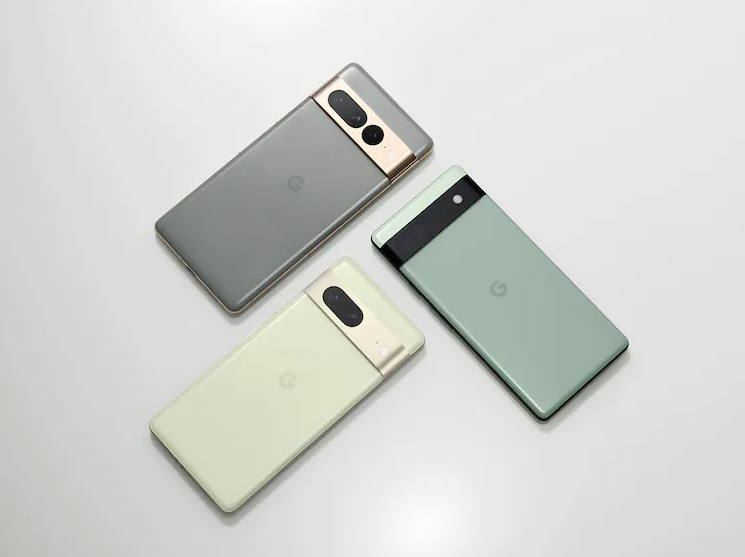Google launches new Pixel 7 and 7 Pro phones with new AI features
The company has made some slight redesigns and added new camera modes powered by the Tensor G2 chip

Your support helps us to tell the story
From reproductive rights to climate change to Big Tech, The Independent is on the ground when the story is developing. Whether it's investigating the financials of Elon Musk's pro-Trump PAC or producing our latest documentary, 'The A Word', which shines a light on the American women fighting for reproductive rights, we know how important it is to parse out the facts from the messaging.
At such a critical moment in US history, we need reporters on the ground. Your donation allows us to keep sending journalists to speak to both sides of the story.
The Independent is trusted by Americans across the entire political spectrum. And unlike many other quality news outlets, we choose not to lock Americans out of our reporting and analysis with paywalls. We believe quality journalism should be available to everyone, paid for by those who can afford it.
Your support makes all the difference.Google has officially unveiled the Pixel 7 and Pixel 7 Pro, its new flagship smartphones.
The key feature of these devices is the new Tensor G2 chip, a better iteration of the chip that launched in the Pixel 6 Pro and offered new AI-powered features like Magic Eraser, for removing people from the background of photos, as well as on-device language processing and transcribing.
The Pixel 7 has a 6.3-inch 1080p screen, and a 90Hz refresh rate, while the 7 Pro has a 6.7-inch 1440p display with up to a 120Hz refresh rate. According to Google, both displays are up to 25 percent brighter than the Pixel 6 and 6 Pro when in peak brightness mode.
Buyers will get 8GB of RAM in the Pixel 7 and 12GB of RAM in the Pixel 7 Pro, and while battery life remains the same Google has said that Extreme Battery Saver mode has been expanded from 48 hours to 72 hours.
The 7 and 7 Pro use the 50-megapixel camera from the Pixel 6 and 6 Pro, with the main difference between them being that the 7 Pro has a telephoto lens with a 10x zoom, as well as a 12-megapixel ultrawide in a newly designed camera bar.
The Tensor G2 chip introduces a Cinematic Blur video mode, which adds portrait-mode effects to video, as well as improving the speed of low-light photography in its Night Sight mode.
The chip also brings a Face Unblur tool, as well as ‘Photo Unblur’ which uses machine learning to remove any blur from a moving object or a camera shake - all done via on-board processing. Google has now introduced a face-unlock feature to the Pixel range as well, rather than relying primarily on the under-the-screen fingerprint sensor.
Many of these upgrades are small, iterative ones from the Pixel 6 and 6 Pro, and benchmarking tests indicate that newer Android phones such as the Samsung Galaxy S23 that will launch in January or February 2023 could be a close competitor in terms of processing power.
However, Google has pushed Pixel-only features on Android for some time now, and buyers might find that - combined with the Pixel’s camera quality - might be enough to keep existing users and attract new ones.
Google says that it has sold just shy of 30 million phones since 2016, which is significantly less than Apple or Samsung, but has developed a cult following among fans in the US that could act as insurance if Samsung moves away from its software.
The Pixel 7 and 7 Pro start from £599 and £849, respectively, in black, white, and green with pre-orders available now.

Join our commenting forum
Join thought-provoking conversations, follow other Independent readers and see their replies
Comments